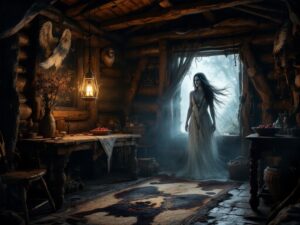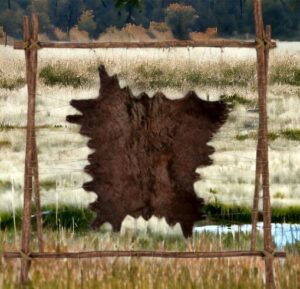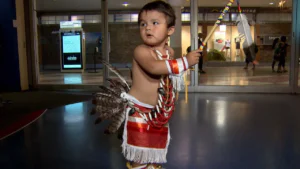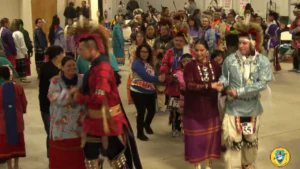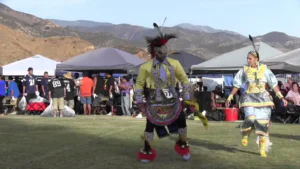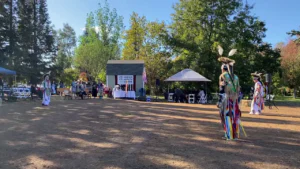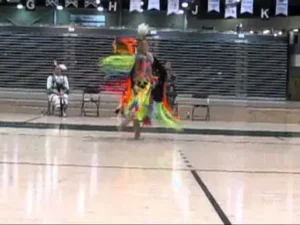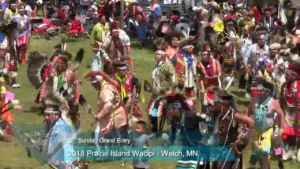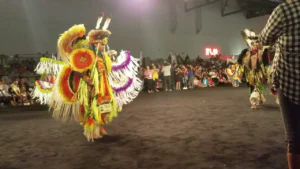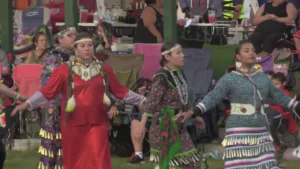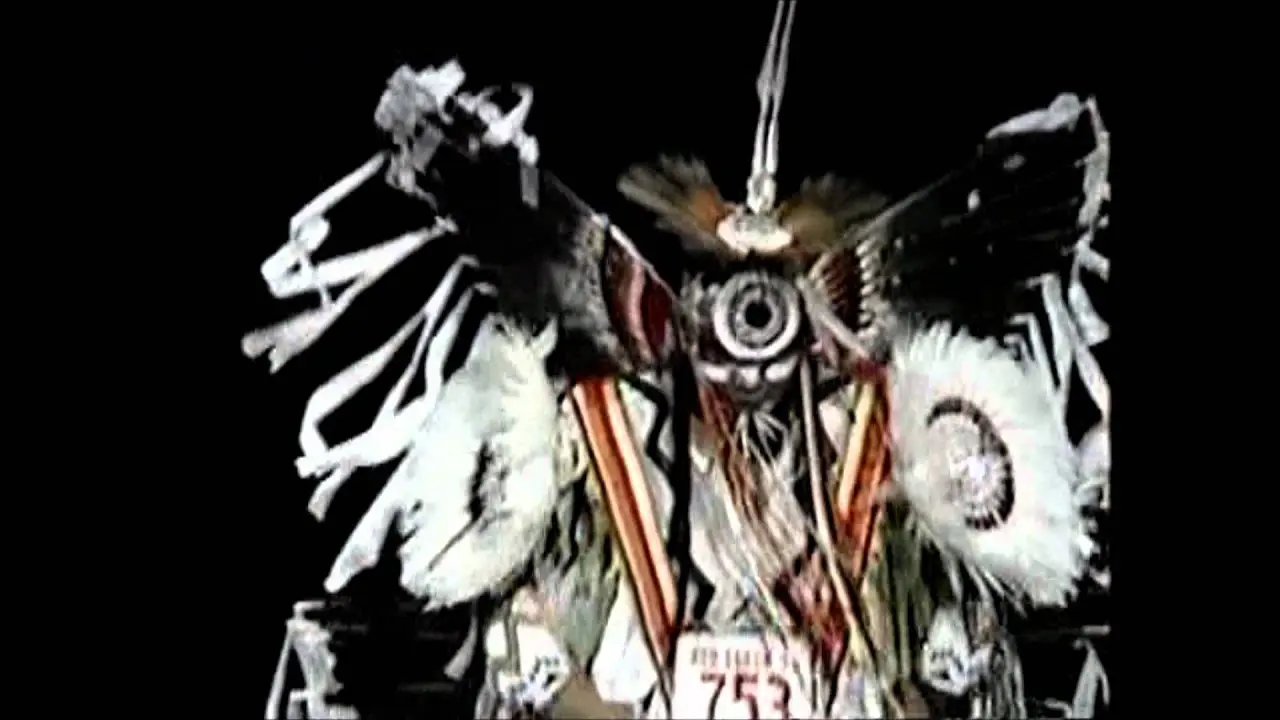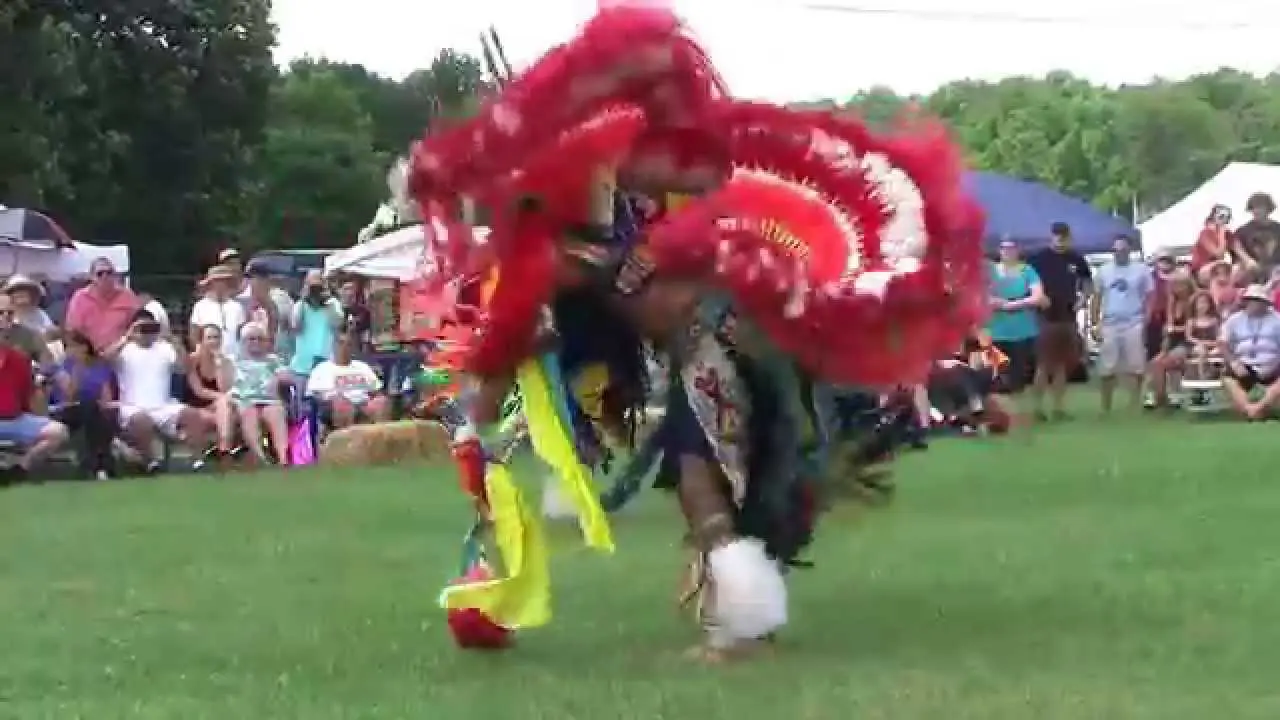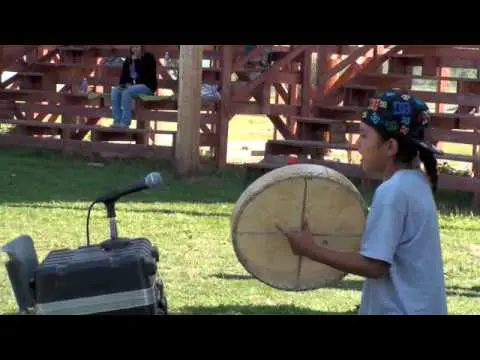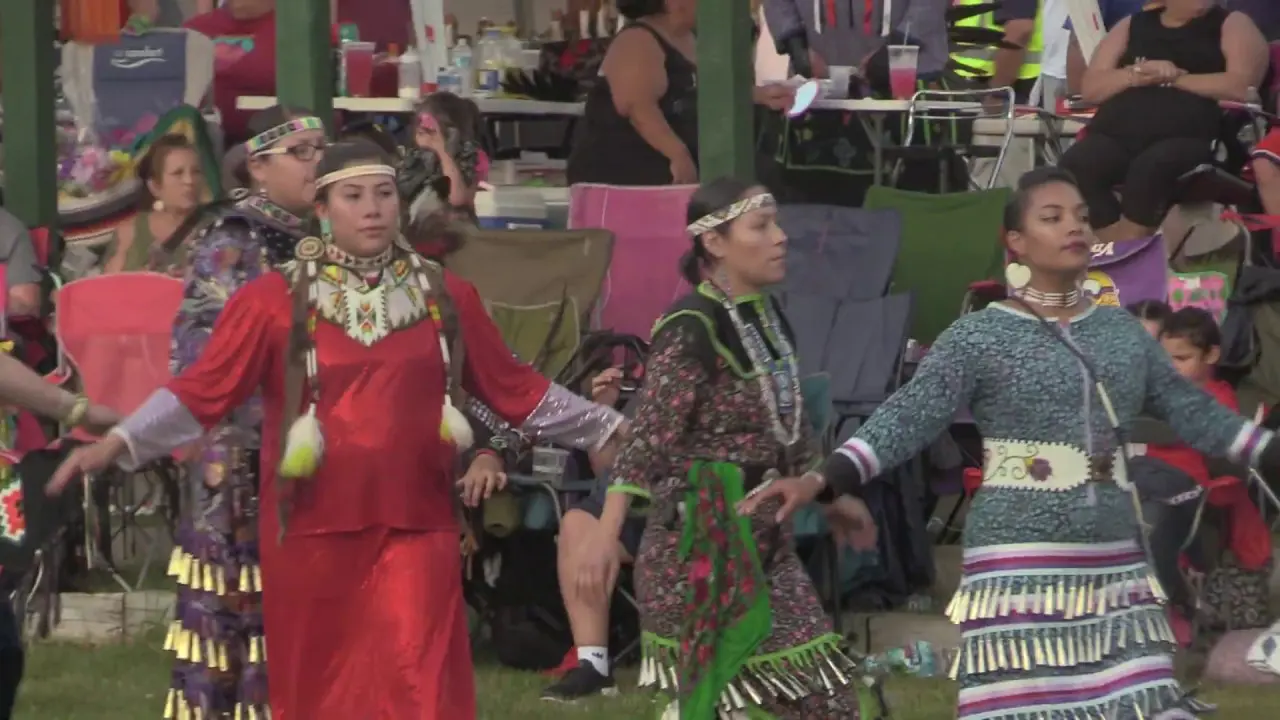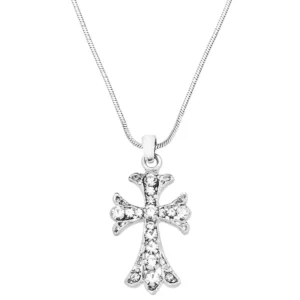A Seneca Legend
In a Seneca village, there was a young man who was an orphan, with neither home nor relatives. He lived first with one family and then with another. One fall, as the men were preparing to go deer hunting, he asked if he could join them. The hunters didn’t want him, and he was left alone. Determined, he said, “I’ll go by myself,” and set off.
As night approached, he came upon an opening in the woods and saw a brush house nestled among the bushes. He peered inside and found it empty. Thinking the other hunters might have built it for a night’s rest, he entered, kindled a fire, made a place to sleep, and lay down.
Around midnight, he heard someone enter the cabin. He opened his eyes to see a woman standing there. She looked at him silently, then moved closer to him and stopped. Finally, she spoke: “I have come to help you. You must not be afraid. I will stay with you all night in this cabin.” He replied, “If you will help me, you may stay.”
“I have passed through this world,” the woman said. “I know that you are poor, that you have no relatives and are alone. The hunters did not want you to go with them. This is why I came to help you. Tomorrow, start early and travel until it is time to camp; I will be there.” With the arrival of dawn, the woman left the cabin.
In the morning, the young man set off. As dusk came, he looked for a spring, found one, and just finished setting up camp when night fell. Once again, the woman appeared as before.
The next day, he had incredible luck, killing every kind of game. The woman remained with him until the end of the hunting season, and no hunter in the woods had collected as much as he had. When he was ready to return home, she said, “I will accompany you back to the first camp you made.” They spent the night there, and in the morning, she advised, “I will stay here. When you arrive home, everyone will discover that you have brought an abundance of meat and skins. Many will approach you, saying, ‘You must marry my daughter,’ and others, ‘You must marry my granddaughter.’ Do not listen to them. Return next year, and you will have good fortune. If someone wishes to accompany you, do not allow it. Come alone. We will meet here again.”
Parting ways, the young man continued his journey, carrying a heavy load of game. Upon entering the village, he encountered some hunters, and soon others came boasting of their own kills. He offered, “I will give each man as much meat as he desires, if he will go to my camp and fetch it.” Many accepted, bringing back all the meat they could carry, yet there was still meat left. Every woman with a daughter or granddaughter urged him to come live with them. Eventually, the chief asked him to marry his daughter. Fearing that refusing the chief, a powerful man, might bring him harm, he consented and married her.
When hunting season returned, many men, including the chief, whom the young man had impressed as the tribe’s best hunter, wished to accompany him. However, he replied, “I will not go this year.” One by one, the hunters set off. Once they were gone, he ventured alone to the camp where he was to meet the woman.
Early that night, she entered and paused by the door. “I am sorry you did not follow my instructions,” she said. “I cannot stay with you,” and with that, she vanished. Day after day, he hunted but could find no large game. He resorted to shooting small game like squirrels and birds, for he was hungry. Ultimately, he returned to the village and had to tell the people he had seen no game. The woman, it turned out, had been a ghost woman.

